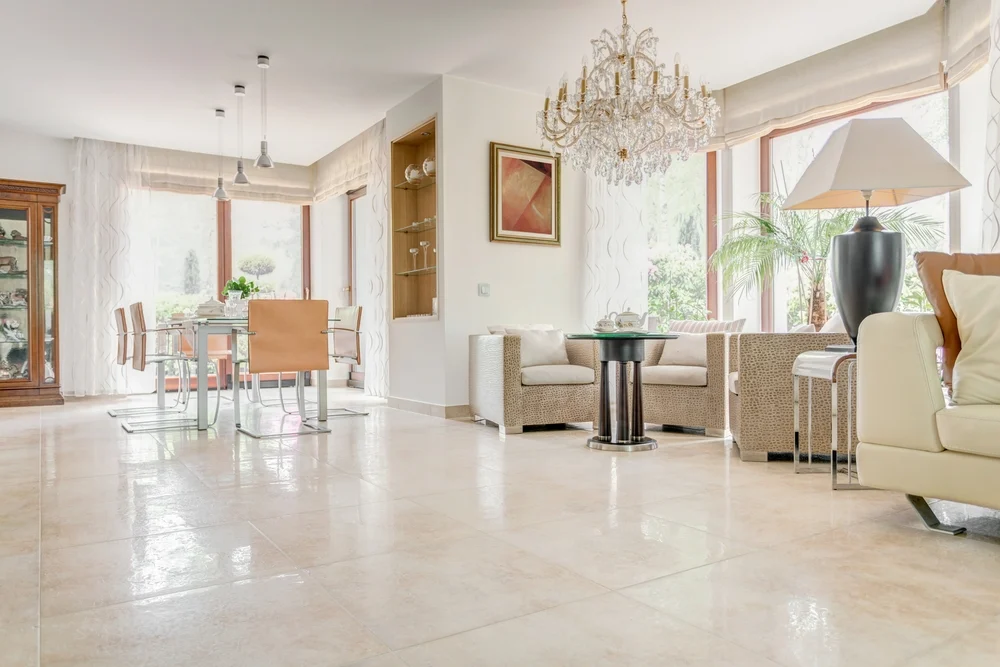How to Choose the Best Flooring Tiles for Your Home

Tile comes in many styles and colors that suit any budget, from subway tiles to rock pebble floors – giving your room style and durability at once!
Finding flooring options that reflect both your lifestyle and personal aesthetic is of the utmost importance, which is why we have compiled this list of tiles perfect for each design style.
Ceramic Tile
Ceramic tile flooring can make an excellent addition to the walls, floors and backsplashes of kitchens, bathrooms and other rooms in any home. Not only are ceramic tiles durable enough for this application; they’re also resistant to moisture intrusion, stain resistance and don’t absorb odors – all qualities which contribute to making them budget-friendly solutions in many homes.
Ceramic tiles come in an assortment of colours and shapes, giving you the flexibility to design unique tile patterns in your home. Ceramics come in designs that emulate wood grain patterns or natural stones while others feature solid hues for simple decor purposes.
Ceramic tiles are typically classified according to hardness by the Porcelain Enamel Institute (PEI), with classes 0-2 being suitable only for wall applications while classes 3 through 5 can handle moderate traffic in homes and light to medium commercial settings respectively. Before selecting tiles for any space it is crucial to assess its abrasion levels before choosing an option.
Porcelain Tile
Porcelain tile is a refined ceramic material made to stand up well under heavy foot traffic, thanks to being fired at higher temperatures and refined. Ideal for hallways and living rooms where high traffic volume occurs, porcelain can resist cracking, fading and scratching as well as handle pet or kid wear-and-tear well.
Water resistance makes porcelain tile flooring ideal for bathrooms or foyers where steam, slush, rainwater and melting snow may accumulate over time and damage other forms of flooring over time. Furthermore, its poreless surface means less absorption of liquid; meeting American TCNA standards of no more than 0.5% absorption per product.
Due to porcelain’s durability, many flooring professionals recommend it for both residential and commercial applications. However, radiant heating may help alleviate discomfort underfoot if necessary.
Marble Tile
Natural marble is a timeless and luxurious material, which adds elegance and luxury to any room it graces. Suited for use across many design styles – traditional, classic and modern alike – and radiant floor heating systems alike, its beauty can enhance any setting.
One of the hallmarks of marble flooring is its signature veining and coloring; no two slabs are exactly alike, which makes them popular among homeowners who wish to make their floors distinctive.
Marble flooring differs from porcelain in that it requires special care in order to withstand water damage, needing annual resealing as a preventive measure against potential water leakage damage and being easily damaged by acidic materials like lemon or cleaning products containing ammonia. Ultimately, though it requires less upkeep overall than its porcelain counterpart.
Though marble has its drawbacks, it remains an attractive and long-term flooring choice for property owners who value aesthetic appeal over durability. Luckily, hybrid options exist that combine the beauty and resilience of marble with those offered by porcelain tiles, such as Selo Grand Hexagon Carrara and Thassos Marble Mosaic Tile; offering the best of both worlds.
Granite Tile
Granite tiles add a sophisticated elegance to any room in the home and are commonly found in luxury apartments, hotels and skyscrapers. Not only are these durable tiles hardwearing enough for high foot traffic environments but they are also extremely cost-effective options.
Granite floor tile comes in many different colors and patterns to blend well with nearly any decor, while its durability makes it especially suitable for busy families’ kitchens.
Granite tiles offer endless customization possibilities, from being honed for a satiny matte surface, brushed for soft textures or antiqued to produce more aged looks. Plus, their scratch resistance means that damage or marring won’t easily occur; professional installation should always be sought out due to being heavier than most tiles and more difficult than usual to cut; not to mention being one of the more expensive flooring tile choices!







